1977 Porsche Turbo Carrera
- Price:
- Location: Philadelphia, Pennsylvania, United States
- Condition: Used
- Make: Porsche
- Model: 930
- Type: Coupe
- Year: 1977
- Mileage: 61,000
- VIN: 9307800715
- Color: Copper Brown Metallic
- Engine size: 3.0L
- Number of cylinders: 6
- Fuel: Gasoline
- Transmission: Manual
- Drive type: RWD
- Interior color: Cork
- Vehicle Title: Clear
1977 Porsche 930 Description
Porsche is well recognized for its nimble, lightweight sports cars dating back to the genesis of the 356 in 1950 evolving into the beloved 911. These naturally aspirated, agile sports cars were Porsche’s bread and butter, well respected by enthusiasts everywhere. However, during the 1970’s Porsche was seeking to create their most powerful and ferocious road car yet which spawned a drastic shift for the German automakers. In 1975, they released the almighty Turbo Carrera to the European market, boasting a turbocharged variant of Porsche’s 3.0L engine that produced a whopping 245bhp. With a 0-60mph time of about 5 seconds and a top speed of a touch over 155mph, this was certainly not your traditional 911. These cars were much more dramatic both cosmetically and in how they performed, showcasing flared wheel arches, massive rear spoiler, and a visceral experience that is not for the inexperienced driver. Especially when in boost, these cars are notorious for over-steering and require the user’s complete focus at all times.
When behind the wheel of the mighty 930, as it was designated by its internal type number, driver’s encounter relatively subtle power and immense turbo lag until about 4,000rpm. Once acceleration reaches optimum boost at approximately 11.5 psi, the 930 tested the true abilities of even the most experienced drivers. Once mastered, the 930 ousted the Ferrari 512 BB slalom record and gained international praise. In 1977, the 3.0 liter 930 Turbo was once again released with minor changes including larger wheel size. In total, Porsche produced only 2,819 first generation Turbo Carreras making them highly-sought after by Porsche enthusiasts and collectors.
The example on offer is a 1977 Porsche Turbo Carrera chassis number 9307800715, engine number 6870699 having traveled 61,000 miles since new. This car has been preserved in its original condition with the exception of one re-spray in the factory correct Copper Brown Metallic. In accordance to its Porsche Certificate of Authenticity, this Turbo is matching-numbers, optioned with sport seats and equipment for California. The early history of this example is not known other than it was a previously a Northern California resident before it was brought to the LBI stable in Philadelphia presumably after living in the California area most its life.
The current cosmetic condition of this car resembles a well-kept, driver quality example with no major flaws. The refreshed paint has a great shine with lots of depth. Looking down the bodylines, the paint shows consistently with no waviness or evidence of poor craftsmanship. It is to be noted that located on the front bumper/nose there are several chips in the paint from appropriate road use, which have been touched up. Under close inspection of the paint, one may pick up on a faint scratch or small chip here and there but this is a common attribute of a driver quality example and does not require any immediate tending to. The panel gaps all fall within the appropriate clearances and display no evidence of prior damage at any point. The glass shows well, free of any major chips, cracks, or deep scratches while the rubber seals and trim items are intact with no significant dry rot or cracking. The fuch wheels are in great shape with the only noteworthy flaw being some very minor curb rash on the driver’s side rear wheel.
Stepping into the interior of this example, it can best be described as highly original with some minor wear consistent with the mileage. An inspection of the door jams will uncover that they do have some small scuffs and or chips but nothing unexpected for a driver quality example. The cork leather interior has fared well however, it is to be mentioned they there are some minor flaws. The leather seats have begun to show the typical wear on the bolsters from entering and exiting the car. Located on the passenger seat is about a 1.5 inch split in the leather. The dash is in great shape with no pull, cracks, or fading, housing the fully operable gauges. One other item to note is a tear in the rear speaker deck on the driver’s side which will ultimately need to be reupholstered. The steering wheel has begun to blister slightly as well but is consistent the rest of the interior and could be easily replaced. The original blaupunkt radio has been swapped with a more modern aftermarket Sony unit. The rugs appear used but have not incurred any prominent stains, rips, or blemishes.
Pop open the front trunk lid and one will be greeted with a nicely sorted front boot. The liner is in good shape and if you take a peek under you will find the original spare wheel and jack comfortably tucked away. The only item worth noting are the hood struts which need to be replaced, a very common attribute of the early Porsches. Relocating to the rear of the car, the engine bay is quite neat, with all surfaces clean and all hoses and finishes appearing fresh. All the appropriate markings, stickers, and coatings are present making this engine bay very much period correct. The underside of this example shows consistent with the quality of the remainder of the car. There are no significant areas of rust or decay, with the suspension components appearing intact and road worthy. Given that this example has seen 61,000 miles of road use, the underside would benefit from a proper detail to tidy things up a bit cosmetically but overall, it is in tact and original.
Mechanically, this example runs and drives as it should. A variety of hoses, lines, belts, and valves were replaced making this a well-sorted example though we suggest a servicing as this car has sat more than it has been driven in recent time. When cold, the engine does tend to stumble a bit but runs comfortably once warm. The engine pulls strong and really plants the driver in the seat once the turbo hits boost. The 4-speed gearbox goes in and out of gear nicely, with the clutch operating as it should. The engine holds a steady operating temperature and produces adequate oil pressure. The steering and braking systems function as expected with no abnormalities to report.
In summation, we are left with a beautiful first generation Turbo Carrera that is in good driver condition. This is an excellent opportunity to own one of the first turbocharged Porsches ever built and one that can be enjoyed without worry of incurring marks being a driver quality car. With only about 2,800 examples produced, it makes these cars highly desirable, especially matching-numbers examples finished in interesting colors. Included in the sale are original tools, spare, and Porsche Certificate of Authenticity.
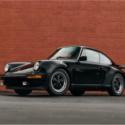 1977 Porsche Turbo Carrera 3.0L Flat 6 Turbo 4 Speed Manual
1977 Porsche Turbo Carrera 3.0L Flat 6 Turbo 4 Speed Manual
Mileage: 57000
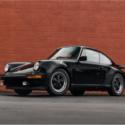 1977 Porsche Turbo Carrera 3.0L Flat 6 Turbo 5 Speed Manual
1977 Porsche Turbo Carrera 3.0L Flat 6 Turbo 5 Speed Manual
Mileage: 57000
 1977 Porsche 930 Turbo Carrera
1977 Porsche 930 Turbo Carrera
Mileage: 15,000
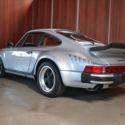 1977 Porsche Turbo Carrera Coupe
1977 Porsche Turbo Carrera Coupe
Mileage: 10,960
 1977 Porsche 911 Turbo Carrera, 58,000 Miles, Superb throughout
1977 Porsche 911 Turbo Carrera, 58,000 Miles, Superb throughout
Mileage: 58000
 1977 Porsche 911 Turbo Carrera Coupe 2-Door 3.0L
1977 Porsche 911 Turbo Carrera Coupe 2-Door 3.0L
Mileage: 15,513
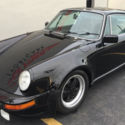 1977 Porsche TURBO CARRERA *56,000 miles***Very rare***
1977 Porsche TURBO CARRERA *56,000 miles***Very rare***
Mileage: 58,755
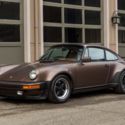 1977 Porsche 911 Turbo Carrera 60k miles Original California car
1977 Porsche 911 Turbo Carrera 60k miles Original California car
Mileage: 60,990
 1977 Porsche Turbo Carrera 930 - Survivor w/ great patina!
1977 Porsche Turbo Carrera 930 - Survivor w/ great patina!
Mileage: 18,800
 1977 Porsche 911 930 Turbo Carrera Minerva Blue Matching Numbers
1977 Porsche 911 930 Turbo Carrera Minerva Blue Matching Numbers
Mileage: 66000











